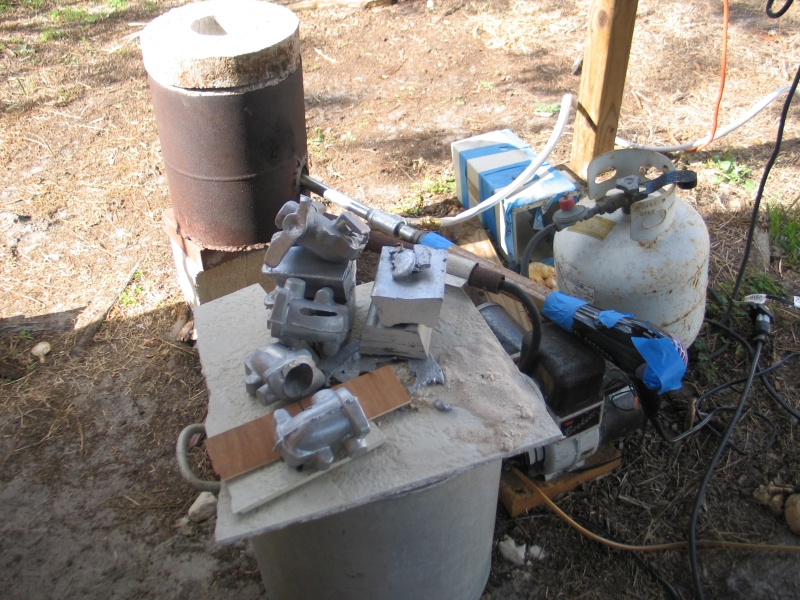
Sorry for all the junk in the photo above. This is an accumulation of all my burner experiments. How much of this stuff can you identify? The blocks in the center are pieces of A-356 ingot. The castings are core misalignment failures waiting to be recast. The old aluminum stock pot makes a handy work table support, it holds sand for lost foam casting. The deck of the "table" is a piece of Hardi-Board left over from siding the shed. It's cement based and makes a good hot surface to lay skimmers and such.
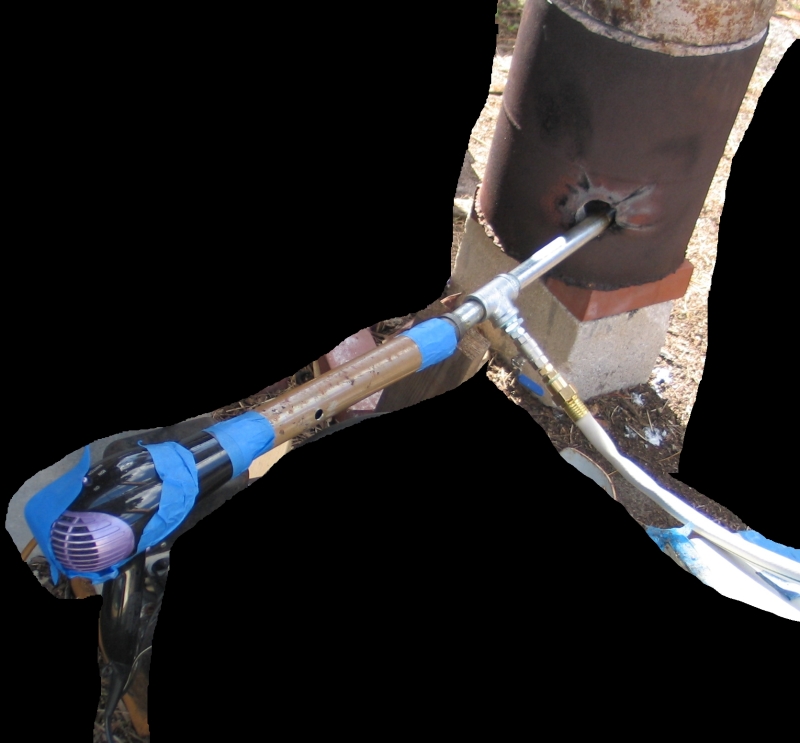
The new 100 foot hose is 5/8" I.D. It still has a few flattened places from the packaging. I see I forgot to plug the hole where to old gas line came in. More tape!
I decided to switch to 3/4" pipe for the burner for two reasons. First, someone on Castinghobby had just done it with good results, and second, I thought it might require less gas.
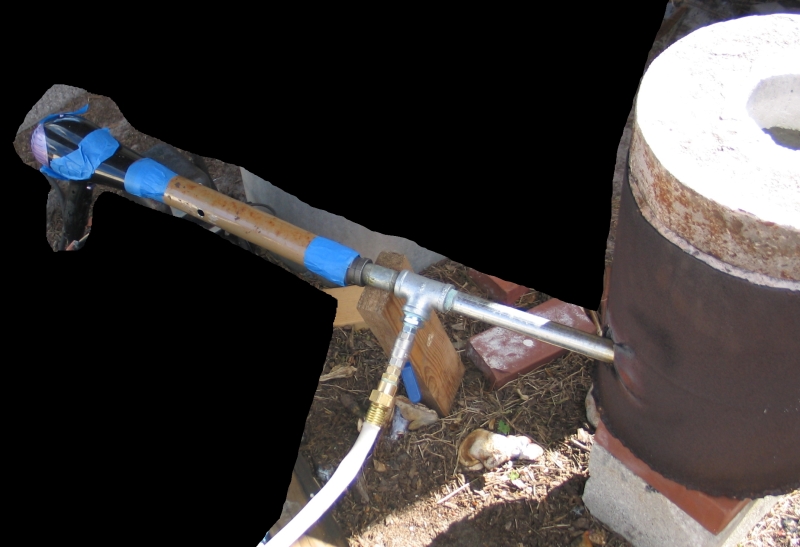
This
is a better view of the new ball valve. The furnace is running in these
photos. You can see the valve is only open part way. This was the sweet
spot, so far. Too much gas made the flames exit the furnace.
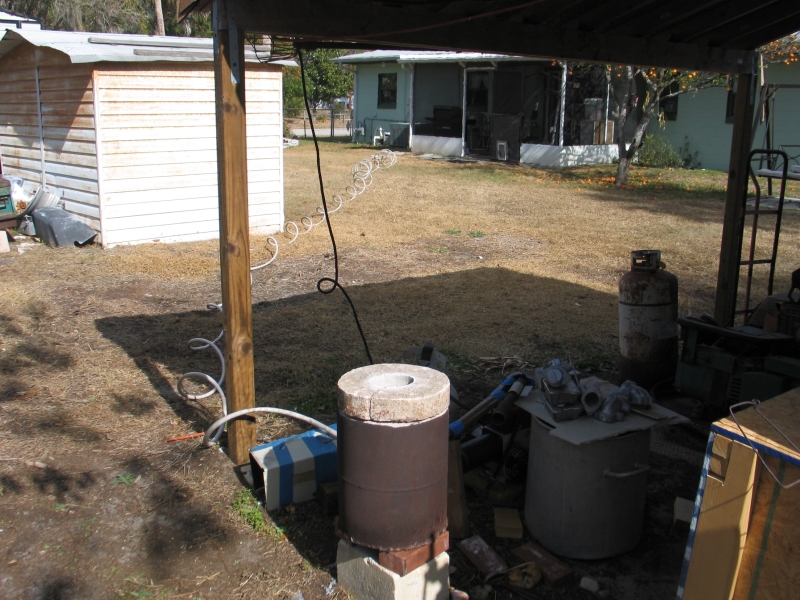
This
is a view of the hose run. It was pretty windy, today, and I didn't
really expect to get a melt. When burning propane, wind can have a bad
effect on my furnace.
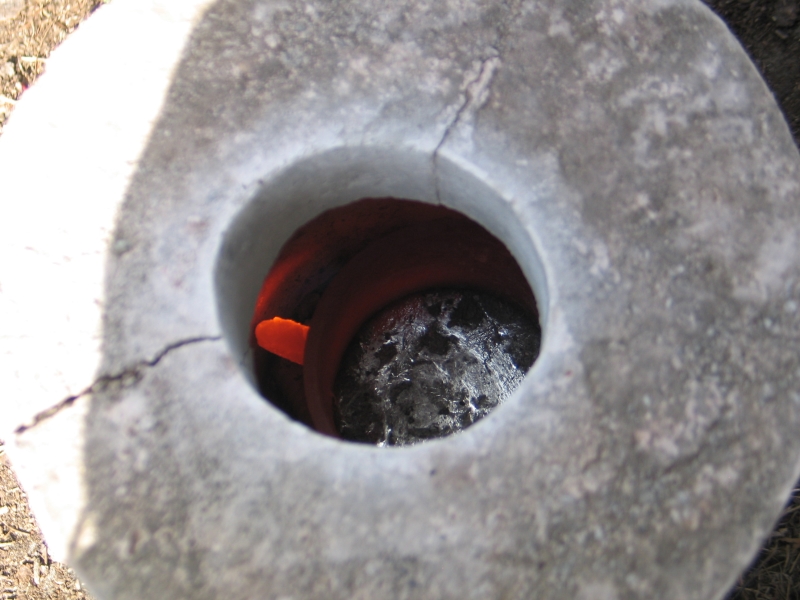
And
the obligatory money shot...er HOT shot. The aluminum is molten, but
hasn't been skimmed, yet. The light blue flames don't appear in the
photos, but they're there.
I wasn't timing this but it's been about 30 minutes since light off. (This furnace has 3000 degree refractory, so it doesn't insulate much, but it's very tough.) Some of the time was wasted playing with settings and relighting when I screwed up.
While I don't have any hard data, this seems to be hotter than on propane. Maybe because of the blower instead of the naturally aspirated propane burner.
Now the local propane guy can go pound sand!
I wasn't timing this but it's been about 30 minutes since light off. (This furnace has 3000 degree refractory, so it doesn't insulate much, but it's very tough.) Some of the time was wasted playing with settings and relighting when I screwed up.
While I don't have any hard data, this seems to be hotter than on propane. Maybe because of the blower instead of the naturally aspirated propane burner.
Now the local propane guy can go pound sand!